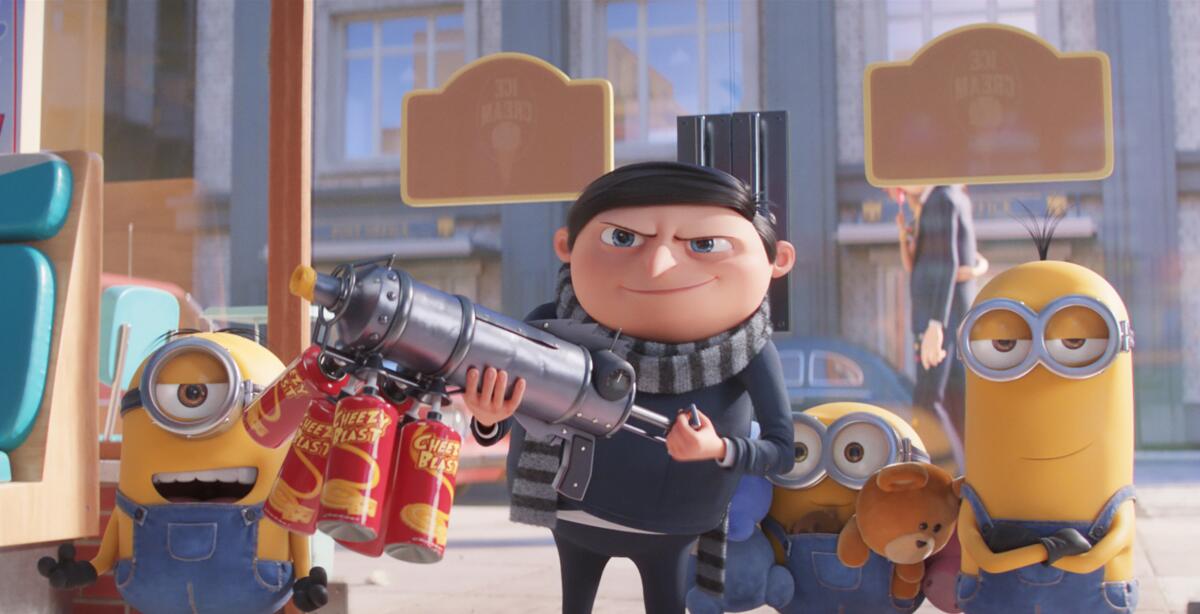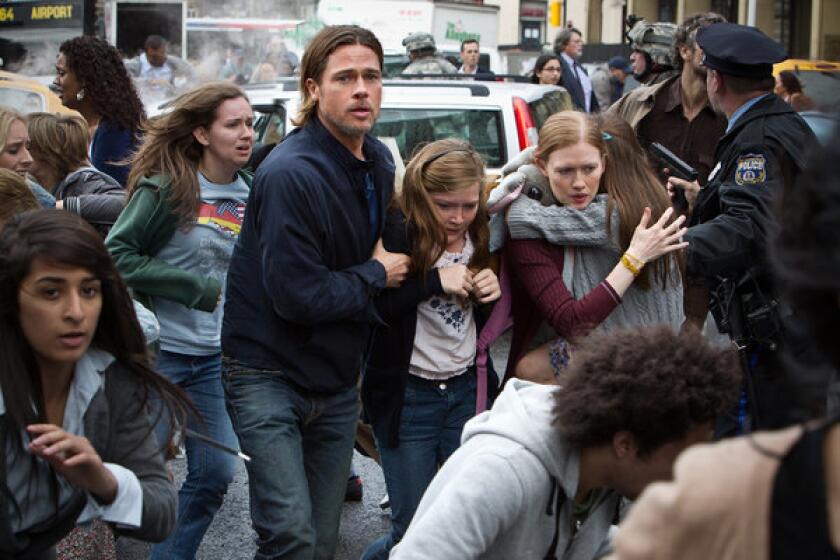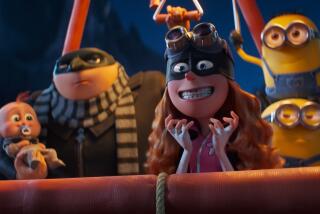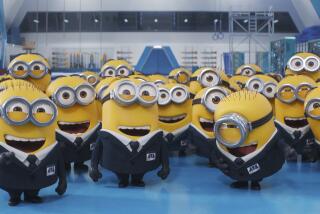Spoiler alert: In China’s censored version of ‘Minions,’ the bad guy gets caught

- Share via
The “Despicable Me” franchise is known for flipping the script on children’s movies by making the bad guys the heroes.
But not on China’s watch, apparently.
According to a recent report from Reuters, social media users in China noticed over the weekend that the ending of Universal Pictures’ “Minions: The Rise of Gru” had been tweaked in an apparent attempt to teach audiences a lesson.
The latest installment in the “Despicable Me” saga tells the origin story of the evil Dr. Gru (voiced in the United States by Steve Carell), who grows up to be one of the world’s most notorious and lovable supervillains.
Recent comments by Trump administration officials have drawn renewed attention to Hollywood’s moves to placate Chinese censors.
In the original version of the family film (spoiler alert!), another supervillain by the name of Wild Knuckles (voiced in the U.S. by Alan Arkin) successfully evades capture after pulling off a heist with his young mentee, Gru, and faking his own death.
According to screenshots posted on the Chinese social media platform Weibo and reviewed by Reuters, however, an addendum appears at the end of the film in China to let viewers know that Wild Knuckles eventually served 20 years in jail after being apprehended by police.
The extended cut also notes that Gru “returned to his family” and that “his biggest accomplishment is being the father to his three girls.”
“Minions: The Rise of Gru” is just one of many non-Chinese films to be censored in the country, which puts foreign titles through a rigorous approval process before releasing them.
The free expression advocacy group is encouraging greater transparency in Hollywood’s dealings with China, as well as commitments to protect the globally released versions of films from Chinese government censorship.
The Oscar-winning 2018 film “Bohemian Rhapsody” was edited to exclude references to Queen frontman Freddie Mercury’s sexuality. Tom Cruise’s bomber jacket in a trailer for the 2022 blockbuster “Top Gun: Maverick” was altered to remove patches representing the flags of Japan and Taiwan. And Tilda Swinton’s character from the 2016 superhero film “Doctor Strange” was changed from a Tibetan monk to a Celtic mystic.
In the past, major movie studios such as Disney, Warner Bros., Sony Pictures, Paramount and Universal Pictures have drawn criticism for allegedly censoring their movies for Chinese audiences to appease the government in Beijing.
Universal Pictures did not immediately respond Tuesday to The Times’ request for comment.
More to Read
Only good movies
Get the Indie Focus newsletter, Mark Olsen's weekly guide to the world of cinema.
You may occasionally receive promotional content from the Los Angeles Times.












